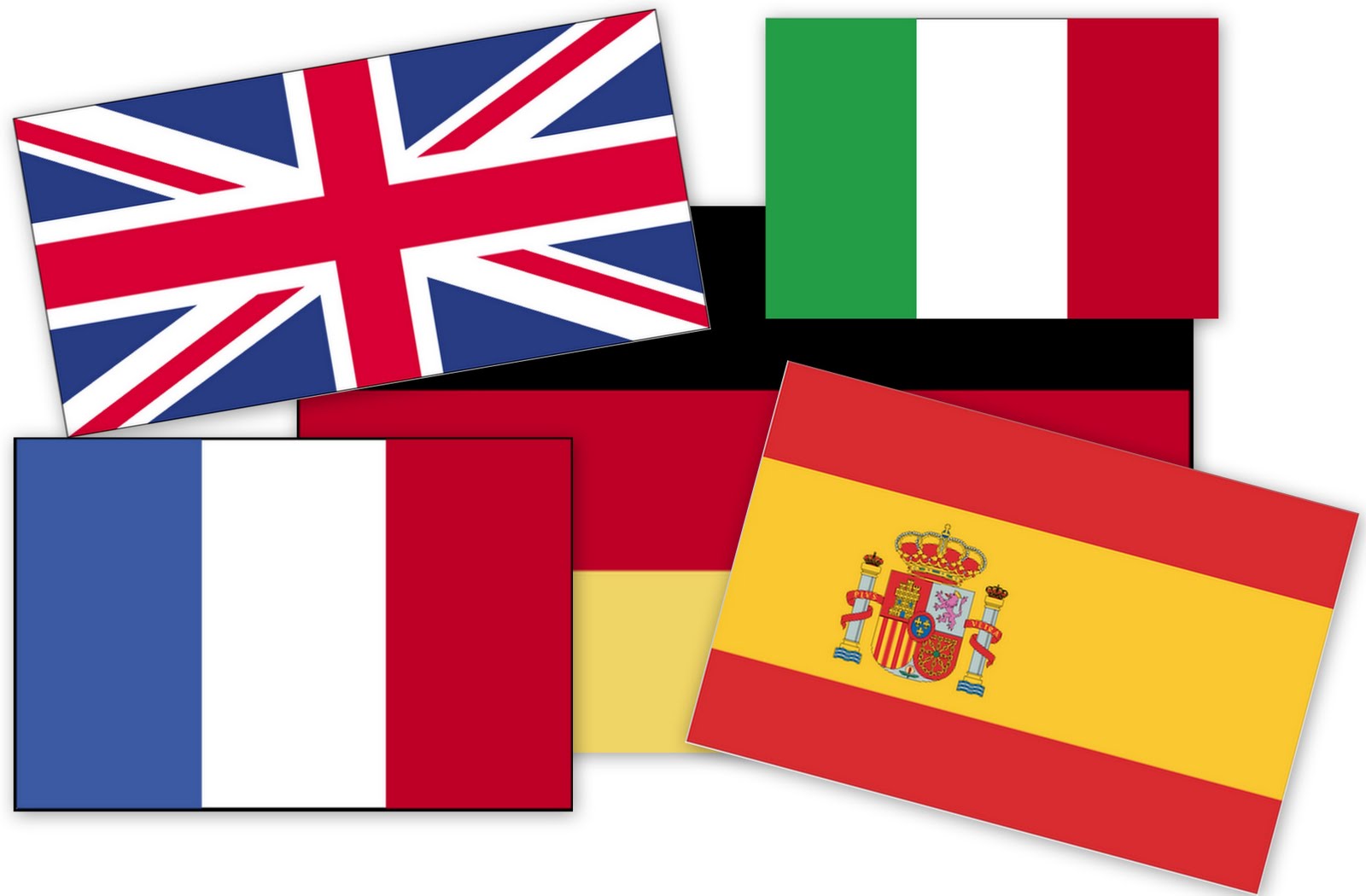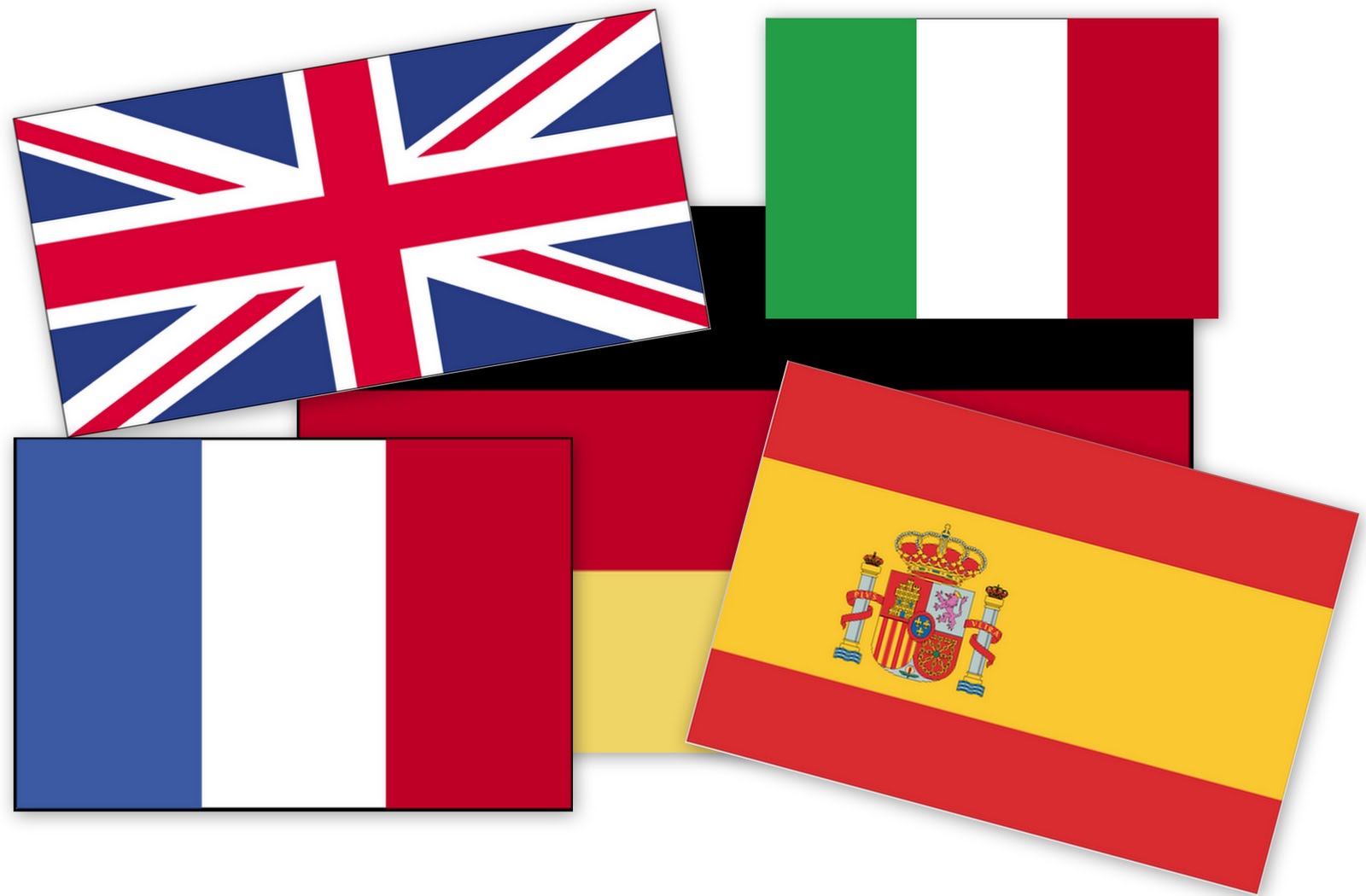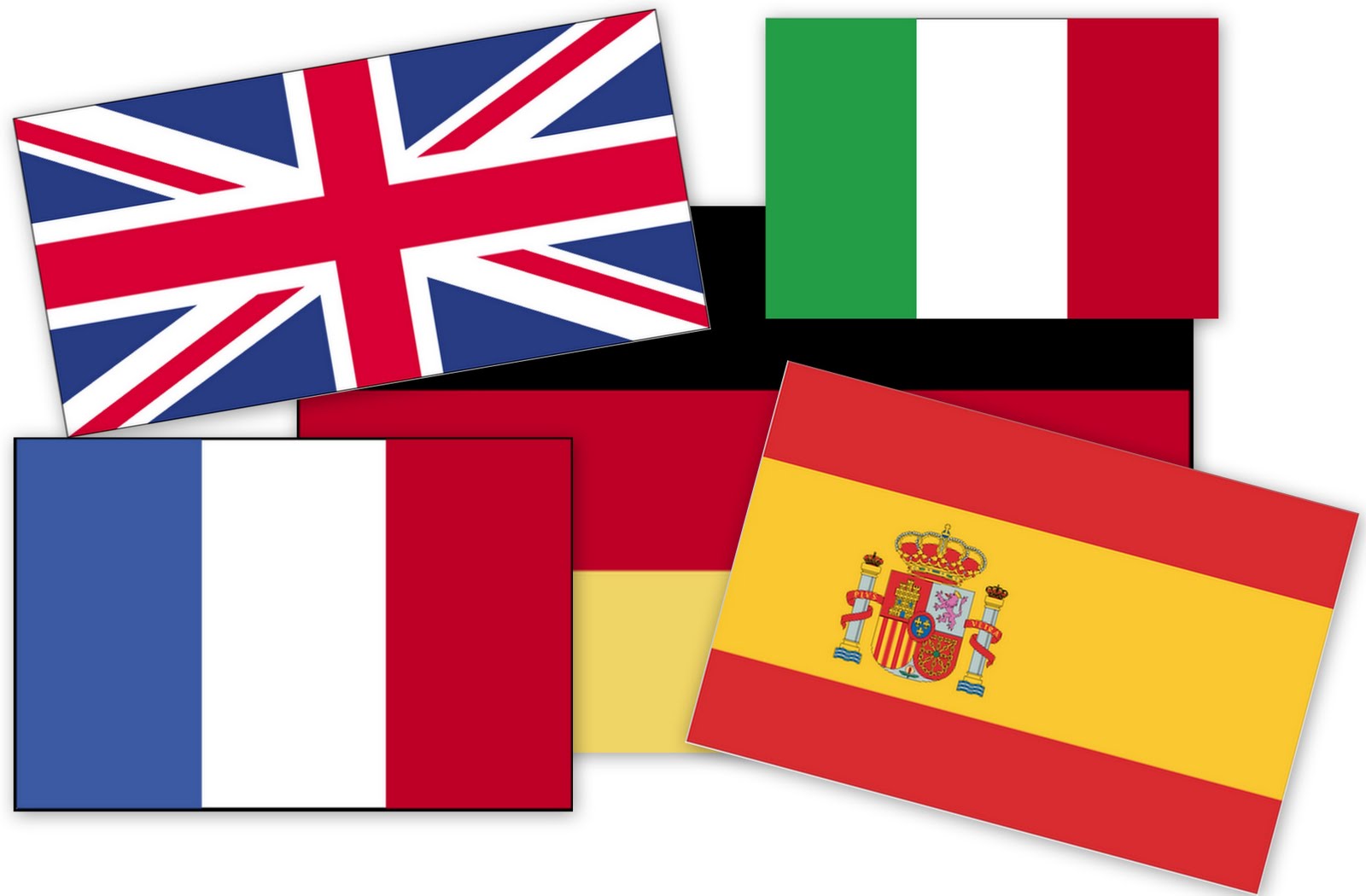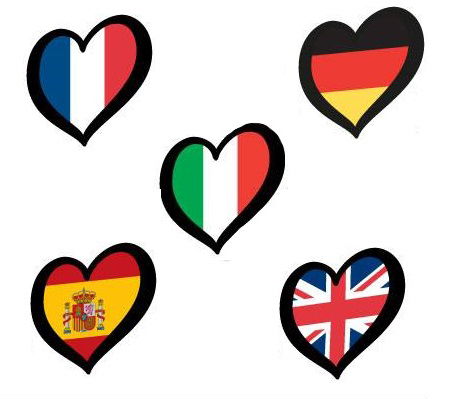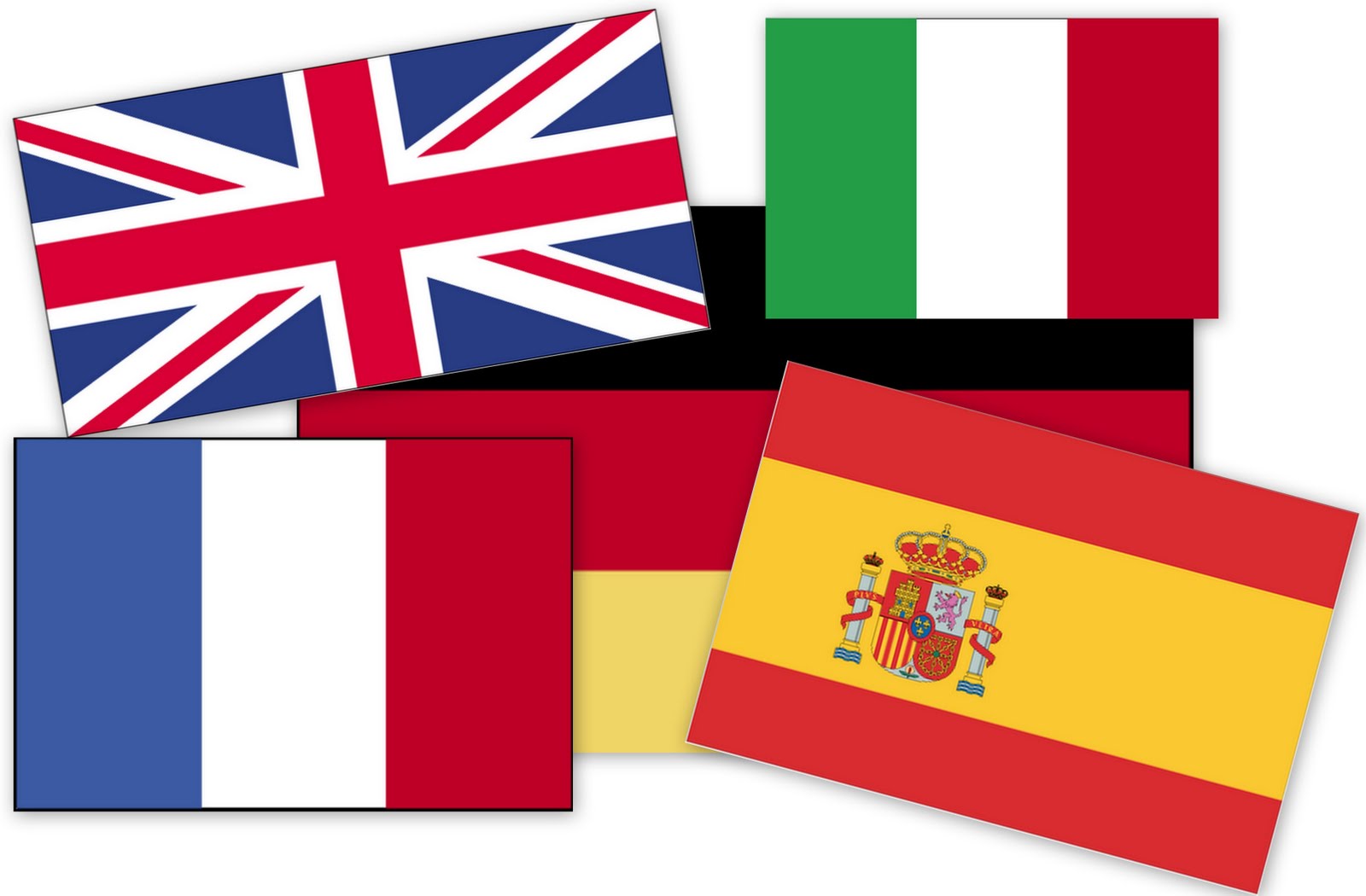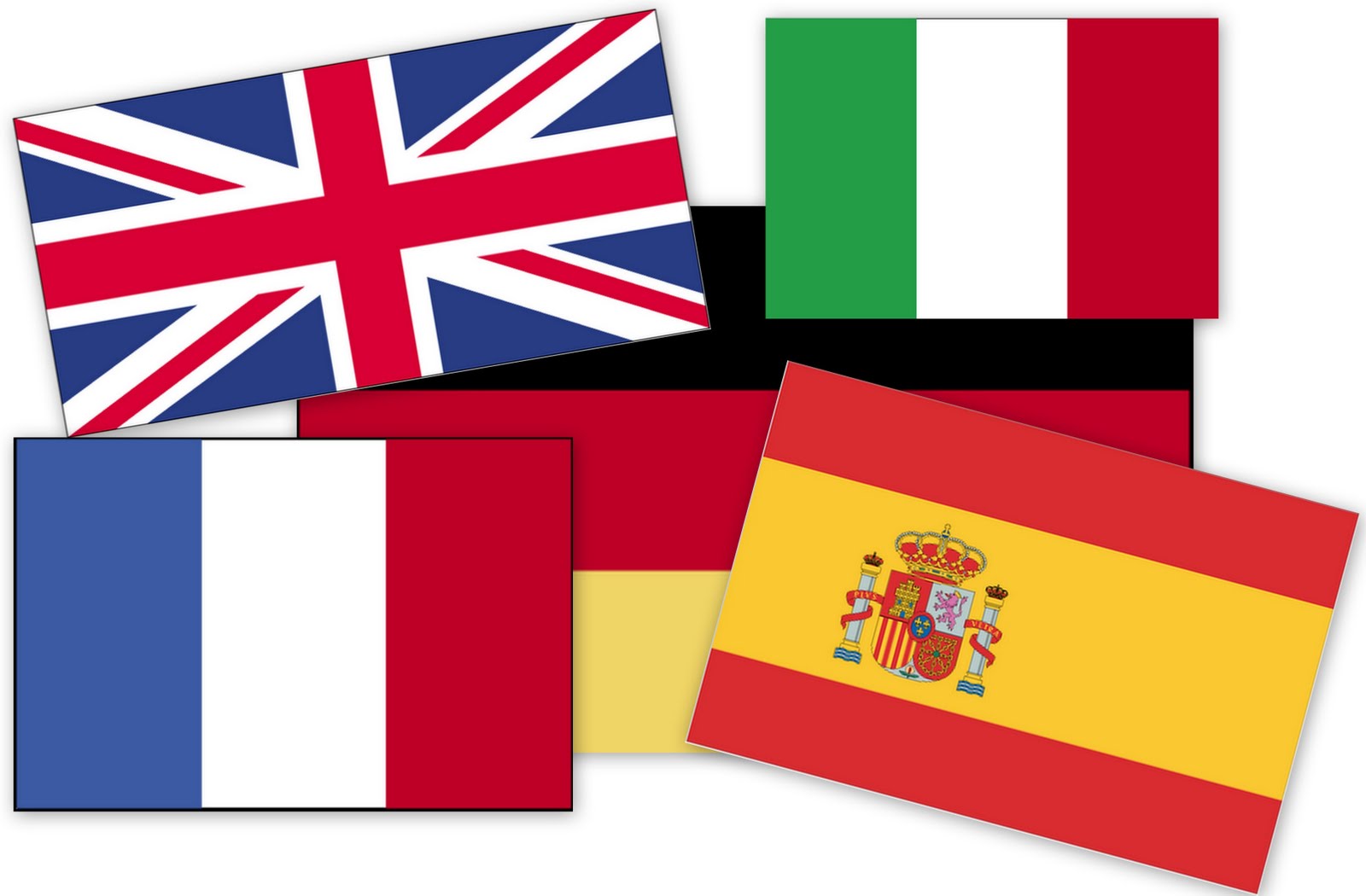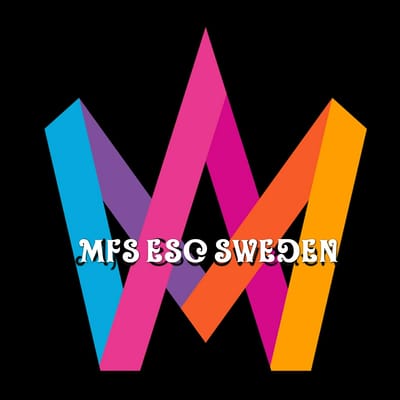Country: United Kingdom Artist: Michael Rice
Participation Grand Final The entry Title Bigger Than Us Performed by Michael Rice Written by Laurell Barker, Anna-Klara Folin, John Lundvik, Jonas Thander Composed by Laurell Barker, Anna-Klara Folin, John Lundvik, Jonas Thander Broadcaster BBC
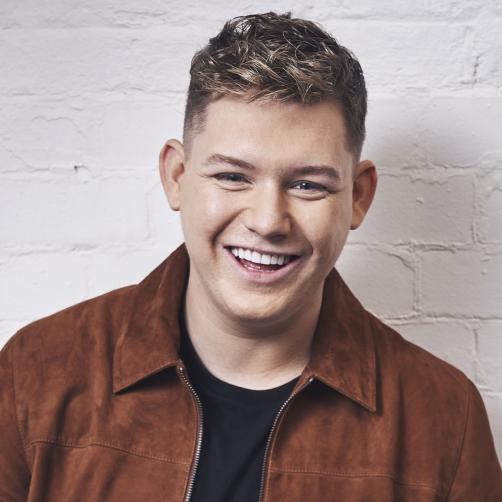 On the 8th of February, Michael Rice was chosen by the public to represent the United Kingdom at the 64th Eurovision Song Contest with 'Bigger Than Us'.
On the 8th of February, Michael Rice was chosen by the public to represent the United Kingdom at the 64th Eurovision Song Contest with 'Bigger Than Us'.
Preview video
Lyrics of Bigger Than Us
English (Original)
Hear these words That I sing to you I will make it clear It’s me, and you We can have this love That we never lose It’s bigger than us Take my hand and I’ll lead you home Can you understand You will never be alone
It’s bigger than us It’s bigger than you and me It’s bigger than us It’s bigger than everything we see Cause I can feel the universe When I’m feeling you breathe It’s bigger than us It’s bigger than you and me It’s bigger
I won’t give up And I won’t let go Cause this kind of love Is gonna be our only hope
It’s bigger than us It’s bigger than you and me It’s bigger than us It’s bigger than everything we see Cause I can feel the universe When I’m feeling you breathe It’s bigger than us It’s bigger than you and me It’s bigger
Bigger, bigger Oh, it’s biggerBigger, bigger
It’s bigger than us It’s bigger than you and me This kind of love It’s bigger than everything we see
Oh, so much biggerBigger than us
It’s bigger than you and me It’s bigger than us I can feel itIt’s bigger than everything we see Cause I can feel the universe When I’m feeling you breathe It’s bigger than us It’s bigger than you and me It’s bigger
Bigger, bigger It’s bigger thanIt’s bigger thanOh, bigger, biggerOh, it’s bigger
Latest news about Michael Rice
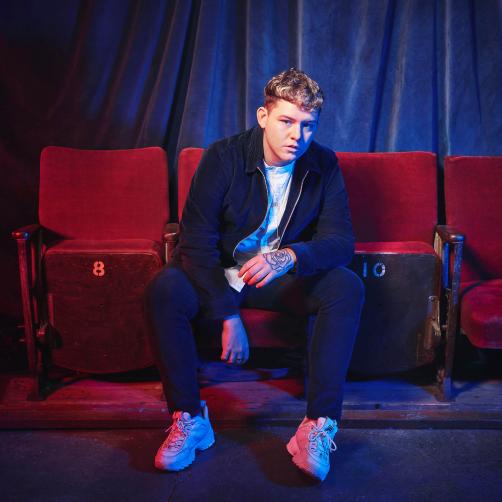
The United Kingdom has participated in the Eurovision Song Contest 61 times and is one of the most successful countries to compete in the contest. They first participated in the second contest in 1957. The UK has entered every year since 1959, and along with Sweden, is one of only two countries with Eurovision victories in four different decades. The United Kingdom is one of the "Big 5", along with France, Germany, Italy and Spain who are automatically allowed to participate in the final as they are the five biggest financial contributors to the European Broadcasting Union (EBU). The British public broadcaster, the BBC, broadcasts the event each year and organises the national selection for the entry. The UK has won the contest five times.United KingdomUnited Kingdom
Member station
BBC
National selection events
National Final
Eurovision: You Decide
1957
1959–2010
2016–2019
Internal selection
1964–1975 (artist)
1992–1994 (artist)
2011–2015
Participation summary
Appearances
61
First appearance
1957
Best result
1st: 1967, 1969, 1976, 1981, 1997
Worst result
Last: 2003, 2008, 2010
Nul points: 2003
External links
BBC page
United Kingdom's page at Eurovision.tv
Song contest current event.png For the most recent participation see
United Kingdom in the Eurovision Song Contest 2019
The United Kingdom's five winners are Sandie Shaw with the song "Puppet on a String" (1967), Lulu with "Boom Bang-a-Bang" (1969 tied), Brotherhood of Man with "Save Your Kisses for Me" (1976), Bucks Fizz with "Making Your Mind Up" (1981) and Katrina and the Waves with "Love, Shine a Light" (1997). The UK has also finished as runner-up on a record 15 occasions; with Pearl Carr & Teddy Johnson (1959), Bryan Johnson (1960), The Allisons (1961), Matt Monro (1964), Kathy Kirby (1965), Cliff Richard (1968), Mary Hopkin (1970), The New Seekers (1972), The Shadows (1975), Lynsey de Paul and Mike Moran (1977), Scott Fitzgerald (1988), Live Report (1989), Michael Ball (1992), Sonia (1993) and Imaani (1998). The United Kingdom finished outside the top ten on only three occasions at the contest in the 20th century (1978, 1987 and 1999).
In the 21st century, the United Kingdom has only reached the top ten twice, with Jessica Garlick third (2002) and Jade Ewen fifth (2009). Since 2003, the UK have finished outside the top 20 on nine occasions, including Jemini's infamous 2003 "nul points" result, which was the first time that the country had come last in the contest. The UK also finished last in 2008 with Andy Abraham (14 points) and in 2010 with Josh Dubovie (10 points).
1950s to 1970sEdit
It was alleged that the United Kingdom were expected to take part in the first contest in 1956, and that they missed the submission deadline and therefore could not take part. This was later revealed by the EBU in January 2017 to be a mythical fact created by fans of the contest.[1] The EBU further went on to explain that the Festival of British Popular Song, a contest created by the BBC for the United Kingdom, was the inspiration that brought in format changes to the contest elements from the Eurovision Song Contest 1957 onwards.[1] Patricia Bredin was the first performer to represent the UK at Eurovision, finishing seventh in 1957. The UK was the first choice to stage the third contest in 1958, however following a failure to get an agreement from various artistic unions, the BBC withdrew their bid in the summer of 1957 and the UK did not enter for the second and last time to date.[2]
At their second attempt in the contest in 1959, the UK achieved the first of their record fifteen runner-up positions, when Pearl Carr and Teddy Johnson sang "Sing, Little Birdie". The UK would achieve four more second-place finishes with Bryan Johnson in 1960, The Allisons in 1961, Matt Monro in 1964 and Kathy Kirby in 1965, before eventually winning for the first time in 1967. Sandie Shaw was already a successful performer, having twice topped the UK singles chart and she comfortably won in Vienna with "Puppet on a String", which became her third UK number one and topped the charts all around Europe. In 1968, another successful performer was selected to represent the UK with the song "Congratulations". In London, Cliff Richard gave the UK their sixth second-place finish, losing to Spain's Massiel. "Congratulations" remains one of only two non-winning UK Eurovision songs to top the UK charts. The UK's second victory was provided by the Scottish singer Lulu, who won with the song "Boom Bang-a-Bang" in 1969, in a four-way tie with France, Spain and the Netherlands. Another established performer, she had reached the US #1 spot with "To Sir with Love" in 1967.
Having finished second on three further occasions in the 1970s, with Mary Hopkin in 1970, The New Seekers in 1972 and The Shadows in 1975. The UK achieved their third victory in 1976 with Brotherhood of Man and "Save Your Kisses for Me", who won with 164 points, which would remain the highest points total for ten years. In 1977, the UK finished second for the tenth time represented by singer-songwriters Lynsey de Paul and Mike Moran.
1980s and 1990sEdit
The UK's fourth victory came in 1981, with Bucks Fizz and "Making Your Mind Up". The group was created especially for the UK televised selection contest, "A Song for Europe" (a programme which in later years would be renamed to "Making Your Mind Up"). At Eurovision in Dublin, they defeated Germany's Lena Valaitis by four points. The group went on to continued success, with 13 UK top 40 hits over the next five years. This would be the last UK win for 16 years, although the country continued to be competitive at the contest with four more second-place results during this time. In 1988, Scott Fitzgerald lost to Celine Dion, who was representing Switzerland, by just one point. In 1989, Live Report lost out to Yugoslavia by seven points. Michael Ball in 1992, also finished second, behind Linda Martin of Ireland. The 1993 entry, Sonia, had already had 10 UK top 30 hits, including a 1989 number one with "You'll Never Stop Me Loving You", when she was selected to represent the UK in Millstreet. With one country left to vote, (Malta) Ireland's Niamh Kavanagh led Sonia by 11 points. By the time it got to the announcement of the 12 points, neither the UK or Ireland had been mentioned. If the UK had received the 12, they would have won by one point. In the end Ireland received the top marks and won by 23 points. Despite only finishing eighth in the 1996 contest, Gina G went on to huge success with her entry "Ooh Ah Just a Little Bit", which became only the second non-winning UK entry to top the UK Singles chart. It also reached the US top 20 and received a Grammy nomination. The UK's fifth victory finally came in 1997, when Katrina and the Waves, famous for their 1980s hit "Walking on Sunshine", comfortably won the contest with the song "Love, Shine a Light". They scored 227 points, which would remain the highest points total of the pre semi-final era. At the 1998 contest in Birmingham, Imaani achieved the UK's 15th second-place finish and 20th top two result, with the song "Where Are You?", losing to Israel's Dana International. The UK, as of 2018, has not finished in the top two since.
21st centuryEdit
The UK has fared less well in the contest in the 21st century. Since girl-group Precious finished 12th in 1999, the UK has failed to reach the top ten in all but two of the last 19 contests (1999–2017) – the exceptions being Jessica Garlick, who finished joint third in 2002 with the song "Come Back" (the UK's only top three result of the century), and Jade Ewen. Ewen in particular, was praised for ending the country's poor run of results for much of the decade, by finishing fifth in 2009 with the song "It's My Time", written by Andrew Lloyd Webber and Diane Warren. In 2003, the UK finished last for the first time with the duo Jemini, who received the infamous "nul points". This remains the only time the UK has failed to score a single point. The country has finished last on two further occasions, with Andy Abraham, who received 14 points in 2008 and Josh Dubovie, who received 10 points in 2010.
In 2011, the BBC chose the boy band Blue to represent the UK, they finished 11th with 100 points. In 2012, the UK were facing calls to quit the contest when the UK entry, Engelbert Humperdinck, finished 25th (out of 26) with only 12 points.[3] However, the UK confirmed their participation in the 2013 contest, with the Welsh singer Bonnie Tyler, most famous for her 1983 US and UK number one hit "Total Eclipse of the Heart", who would perform the song "Believe in Me".[4] In Malmo, she finished 19th with 23 points.[5] She went on to win two internationally voted Eurovision Song Contest radio awards for Best Female Singer and Best Song.[6]
In 2014, the BBC internally selected unknown singer Molly Smitten-Downes, through BBC Introducing, which supports new and unsigned acts. She represented the UK in Copenhagen under her artist name Molly. In the final, she performed the song "Children of the Universe", which she co-wrote with Anders Hansson and finished in 17th place with 40 points, having been regarded as one of the favourites to win the contest.[7] In October 2014, Guy Freeman stated that the BBC are still engaging with record companies and the BBC Introducing platform in order to find an entry for the 2015 contest via the internal selection process, but announced that in addition, for the first time since 2008, they are giving the general public the option to submit an entry for consideration.[8][9] Ultimately, the entry for 2015 came through open submission, with the song "Still in Love with You" performed by the duo Electro Velvet.[10] The song finished in 24th place, with only five points, the UK's worst performance in terms of points tally since the infamous nul points of 2003. The performance was widely deplored by viewers and openly mocked on social media,[11] with the British media putting increasing pressure on the BBC to change its selection policy for future contests.
On 30 September 2015, the BBC confirmed the national selection show would return in 2016.[12] Six acts competed in the national final on 26 February and the winner was selected entirely through a public vote, consisting of televoting and online voting. "You're Not Alone" performed by Joe and Jake won the national final broadcast live on BBC Four.[13] At the final they came 24th with 62 points in total.[14] Of these only 8 were from the public vote, the second lowest public score, following 0 to the Czech Republic. In spite of the latest disappointing result, the BBC announced that the national final format would be retained for 2017.[15] Six acts again participated in the final, which was held on 27 January 2017. It was broadcast on BBC Two as opposed to BBC Four the previous year, and the winner was determined by a combination of scores from a professional jury and televoting (including votes cast online). Former X Factor contestant Lucie Jones won the show and earned the right to represent the UK at the 2017 contest in Kiev, with the song "Never Give Up on You", becoming the 60th UK Eurovision entry.[16][17] The song won praise by many fans across Europe for its impressive staging, and finished a respectable 15th in the final with a combined score of 111 points, placing 10th in the jury vote with 99 points and 20th in the televote with 12 points.[18]
United Kingdom and the "Big Four/Five"Edit
In 1999, a rule change allowed the United Kingdom, along with France, Germany and Spain, to automatically qualify for the Eurovision Song Contest final (irrespective of their recent scores and without entering a semi-final), due to being the biggest financial contributors to the EBU.[19] Due to their untouchable status in the contest, these countries became known as the "Big Four" (which became the "Big Five" in 2011 following the return of Italy to the contest).[20]
In 2008, it was rumoured that the "Big Four" would lose their automatic qualification, and would have to compete in the semi-finals for the first time.[21] However, it was announced by the EBU that this would not be the case and the four countries would still automatically qualify for the final of the 2009 contest without having to enter a semi-final,[22] and this has remained as of 2018.
In 2008, the BBC defended using money from TV licence fee payers for the contest when Liberal Democrat MP Richard Younger-Ross had tabled a Commons motion which called on the corporation to withdraw its £173,000 funding for the annual contest. That same year, former Eurovision commentator Sir Terry Wogan claimed that the show is "no longer a music contest" after the result was announced.[23]
Since the introduction of the Big Four/Five, the United Kingdom and Germany have both finished last in the contest three times. The United Kingdom also has the fewest top ten results of the Big Five in the 21st century, but has achieved more top five results than Spain, having reached the top five in 2002 and 2009, while Spain has not reached the top five since the 1995 contest.
National selection ("You Decide")Edit
Main article: UK national selection for the Eurovision Song Contest
As well as broadcasting the contest each year, the BBC also organises the selection process for the entry with a televised national final (historically titled A Song For Europe). The process has varied between selecting both performer and song, or just the song, with the artist being selected internally.
For most years the public has been able to vote for the winner, in the past with postcard voting, where the viewers sent postcards with their vote to the BBC, but more recently televoting and online. In 2009 and 2010, the singer was chosen by a public vote and the song internally selected. From 2011 to 2015, there was no televised selection, and both the artist and song were selected internally by the BBC. This resulted in the national selection process being suspended; however, this returned in 2016, re-titled Eurovision: You Decide, with viewers once again choosing which song to enter into the contest. Since 2017, the votes from a professional jury panel have been combined with the public vote to select the winner.
Table key
Winner
Second place
Third place
Last place
Year Artist Language Title Final Points Semi Points Place (1968 & 1976) Points (1968 & 1976)
1968 Cliff Richard English "Congratulations" Failed to qualify 8 105 2 28
1976 Brotherhood of Man English "Save Your Kisses for Me" 5 230 5 154 1 164
Voting historyEdit
As of 2018, the United Kingdom's voting history is as follows:
Most points given in the grand finals only
Rank Country Points
1 Malta 253
2 Sweden 209
3 Germany 171
4 Switzerland 156
5 Israel 135
Most points given in the semis and finals
Rank Country Points
1 Ireland 322
2 Sweden 249
3 Israel 180
4 Germany 171
5 Lithuania 169
Most points received
Rank Country Points
1 Ireland 249
2 Switzerland 206
3 France 195
4 Austria 189
5 Germany 187
HostingsEdit
Norton and Mede hosted the Greatest Hits concert in 2015.
The United Kingdom has hosted the Eurovision Song Contest a record eight times. The United Kingdom stepped in and hosted the contest for the Netherlands in 1960, France in 1963, Monaco in 1972 and Luxembourg in 1974 due to winning countries financial and capacity issues. In four occasions (1968, 1977, 1982 and 1998) the UK got the right to host because of a victory. The BBC offered to joint host the 1996 contest in Belfast, Northern Ireland with Irish broadcaster RTÉ if Ireland were to win for a fourth year in a row.[citation needed].
In 2015, London hosted Eurovision Song Contest's Greatest Hits, an event to commemorate the 60th anniversary, which was recorded for television on 31 March 2015 and was shown in 26 countries, starting with the UK and Ireland on 3 April 2015.[25]
Year Location Venue Presenters
1960 London Royal Festival Hall Katie Boyle
1963 BBC Television Centre
1968 Royal Albert Hall
1972 Edinburgh Usher Hall Moira Shearer
1974 Brighton Brighton Dome Katie Boyle
1977 London Wembley Conference Centre Angela Rippon
1982 Harrogate Harrogate International Centre Jan Leeming
1998 Birmingham National Indoor Arena Ulrika Jonsson and Terry Wogan
Eurovision Song Contest's Greatest HitsEdit
Year Location Venue Presenters
2015 London Eventim Apollo Petra Mede and Graham Norton
AP AwardsEdit
Year Category Song Performer(s) Final result Points Host City
2004 Composer Award "Hold Onto Our Love" James Fox 16th 29 Istanbul
Commentators and spokespersonsEdit
Over the years BBC commentary has been provided by several experienced radio and television presenters, including Tom Fleming, David Vine, David Jacobs, Dave Lee Travis, Pete Murray, John Dunn and Michael Aspel. However Terry Wogan provided BBC TV commentary every year from 1980 to 2008.[26] It was confirmed on 12 August 2008 that Terry Wogan would no longer present the Eurovision Song Contest for the UK. The BBC Radio 2 DJ, who had fronted the BBC's coverage for 37 years, said it was "time for someone else to take over".[27] He was replaced in 2009 by Graham Norton for the final. Norton has continued in the role ever since.
The final of the contest has been broadcast by BBC One (previously BBC Television Service and BBC TV) since the first contest in 1956, the first live colour transmission of the contest in the United Kingdom was the Eurovision Song Contest 1970, the first high definition broadcast of the contest began in 2007 when the contest was simulcast on BBC HD. The final is also broadcast on radio, initially on BBC Light Programme until the 1967 contest. From 1968 it was broadcast on BBC Radio 1, moving to BBC Radio 2 from the 1974 contest where it has remained ever since (except for 1983–1985). Between 1963 and 1976 and from 1980 until 1985 the contest was also broadcast on BFBS Radio. From 2004 to 2015 both semi-finals were broadcast on BBC Three. Since BBC Three became an online only channel in February 2016, semi-final coverage is now broadcast on BBC Four.[28]
In the 1998 Contest, hosted in Birmingham, Terry Wogan acted as both commentator and on-stage presenter (together with Ulrika Jonsson). In the 1980 Contest, each song was introduced by a presenter from the national country, the United Kingdom entry being introduced by Noel Edmonds.
For most contests, a spokesperson has delivered the results of the national jury, or in recent years the results of the televoting, awarding points to the entries on behalf of his or her country. The exceptions were the contests held in 1971–1973 when votes were cast by two jury members present at the contest venue, appearing at the end of the contest to confirm their scores.
No British-born broadcaster has either presented or commentated on the live television final for over thirty years, the last being Jan Leeming in 1982.
Year(s) Final television commentator Radio commentator Spokesperson Semi-final television commentator Semi-final second television commentator Online/BFBS commentator
1956 Wilfrid Thomas Unknown UK did not participate No semi-finals No semi-finals N/A
1957 Berkeley Smith Tom Sloan David Jacobs
1958 Peter Haigh UK did not participate
1959 Tom Sloan Pete Murray Pete Murray
1960 David Jacobs Nick Burrell-Davis
1961 Tom Sloan Michael Aspel
1962 David Jacobs Peter Haigh Alex Macintosh
1963 Michael Aspel Pete Murray
1964 Tom Sloan TBC Ian Fenner
1965 David Gell Alastair Burnet[citation needed]
1966 John Dunn Michael Aspel
1967 Rolf Harris Richard Baker Thurston Holland
1968 N/A Pete Murray
1969 Michael Aspel Colin-Ward Lewis John Russell
1970 David Gell Tony Brandon
1971 Dave Lee Travis Terry Wogan N/A
1972 Tom Fleming Pete Murray Terry James
1973 Terry Wogan Richard Astbury*
1974 David Vine Terry Wogan Colin-Ward Lewis
1975 Pete Murray Ray Moore
1976 Michael Aspel
1977 Pete Murray Colin Berry N/A
1978 Terry Wogan Ray Moore
1979 John Dunn
1980 Terry Wogan Steve Jones Ray Moore Andrew Pastona
1981 Ray Moore Colin Berry N/A
1982
1983 Not broadcast on BBC Radio Richard Nankivell
1984
1985
1986 Ray Moore N/A
1987
1988 Ken Bruce
1989
1990
1991
1992
1993
1994
1995
1996
1997
1998 Ken Bruce
1999 Colin Berry
2000
2001
2002
2003 Lorraine Kelly
2004 Paddy O'Connell No dual commentator
2005 Cheryl Baker
2006 Fearne Cotton
2007 Sarah Cawood
2008 Carrie Grant Caroline Flack
2009 Graham Norton Duncan James Sarah Cawood
2010 Scott Mills
2011 Alex Jones Scott Mills Sara Cox
2012 Scott Mills
2013 Ana Matronic
2014 Laura Whitmore Ana Matronic
2015 Nigella Lawson Mel Giedroyc
2016[29] Richard Osman N/A
2017 Katrina Leskanich
2018 Mel Giedroyc Rylan Clark-Neal
It has to be assumed that Terry Wogan's commentary was taken by BFBS in 1975 since Terry says in his BBC Radio 2 commentary "Richard Astbury sends his apologies to BFBS listeners - technical difficulties".
Additionally, from 2004–2010, Paddy O'Connell commentated on the semi-final shows. In 2007, 2009 and 2010 he was also joined by Sarah Cawood. In 2008 he was joined by Caroline Flack. In recent years, the dual-commentator format during the semi-finals has allowed for the broadcaster to incorporate additional segments, interviews and live viewer interaction, during the programmes live airing.[30]
In 2011, O'Connell was replaced by Scott Mills who provided the commentary from London, while Sara Cox provided interaction from the venue. Cox and Mills both provided commentary again in 2012 from the venue. In 2013, Cox was replaced by Ana Matronic[31] and Matronic was replaced in 2014 by Laura Whitmore.[32] Mel Giedroyc replaced Whitmore as co-commentator in 2015.[33] In 2014, Matronic provided commentary for the second semi-final of the 2014 Contest on BBC Radio 2 Eurovision, a temporary station which was broadcast on DAB radio over four days, as well as the BBC Radio 2 website. She continued this role in 2015.[34] In 2018, Rylan Clark-Neal will take over Giedroyc's role as co-commentator alongside Mills.[35]
ConductorsEdit
All conductors are listed by their birthplace flags but are all British. UK flag included if unknown.
England Eric Robinson (1957, 1959–1960, 1963, 1965) (musical director in 1960, 1963)
Scotland Harry Robinson (1961)
England Wally Stott (1962)
South Africa Harry Rabinowitz (1964, 1966)
United Kingdom Ken Woodman (1967)
England Norrie Paramor 1968 (also musical director)
Scotland Johnny Harris (1969)
United Kingdom Johnny Arthey (1970–71)
United Kingdom Malcolm Lockyer (1972) (musical director, but did not conduct any entry)
Australia David Mackay (1972–73)
England Nick Ingman (1974)
England Alyn Ainsworth (1975–76, 1978, 1990)
England Ronnie Hazlehurst (1977, 1982, 1987–89, 1991–92) (musical director in 1974, 1977, 1982)
England Ken Jones (1979)
England John Coleman (1980–81, 1983–85)
England Nigel Wright (1993)
United Kingdom Michael Reed (1994)
United Kingdom Mike Dixon (1995)
England Ernie Dunstall (1996)
England Don Airey (1997)
United Kingdom Martin Koch (musical director in 1998)
United Kingdom James McMillan (1998)
Prior to 1999, the UK entry was performed without orchestral accompaniment in 1986.[36]